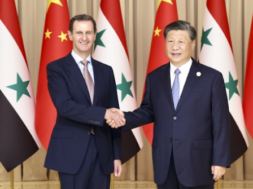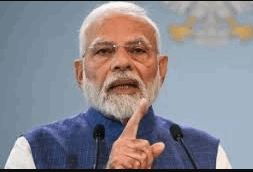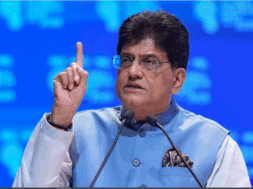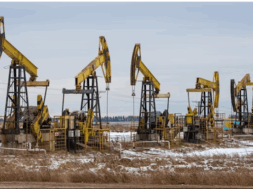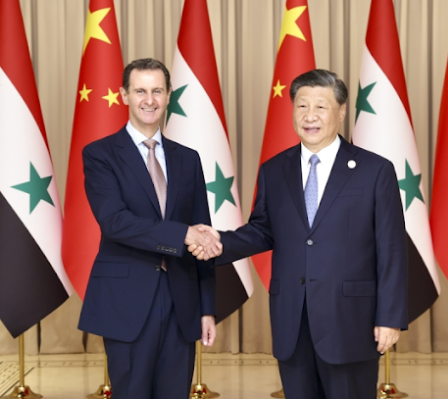
Roving Periscope: After the Syrian episode, Xi asks Chinese officials to pull up socks
Virendra Pandit
New Delhi: Perhaps worried over the lightening collapse of the five-decade-old Ba’athist regime of the family of Syrian President Bashar al-Assad, his Chinese counterpart Xi Jinping has directed officials to enhance the governance and high-quality development in the country’s border areas prioritizing national security and social stability.
The latest development, and the utter collapse of the Syrian armed forces which almost joined the insurgents, are likely to ignite anti-Ayatollah fires in Iran, and, by extension, also impact Russia and China which supported the al-Assad regime.
It is essential to prioritize national security and social stability as the bottom-line requirement for governance in border areas, President Xi told the Political Bureau of the Communist Party of China (CPC) on Monday, the media reported Tuesday.
He emphasized upholding the CPC’s overall leadership in all aspects and throughout the entire governance process in border areas.
“No border area shall be left behind in advancing Chinese modernization,” he was quoted as saying by the state-run Xinhua news agency.
President Xi also highlighted the need for comprehensively promoting standard spoken and written Chinese language and the use of unified state-compiled textbooks and called for accelerating the development of an independent Chinese knowledge system for borderland studies, and research into major theoretical and practical issues related to governance in border areas, Xinhua reported.
After 54 years in power, the al-Assad family’s rule in Syria ended on December 8, when President Bashar al-Assad fled the country and sought asylum in Russia. The collapse of one of the most brutal regimes in the modern history of the Middle East came after just 12 days of resurgent fighting between the Syrian army and a coalition of Sunni opposition groups which ended the 13-year Syrian civil war, sparked by a teenager’s graffiti in a southern town in 2011, according to reports.
The Syrian conflict claimed the lives of over 350,000 Syrians and displaced nearly 13 million others to other countries, including Turkiye and Europe. Brutal repression by the al-Assad regime turned a local revolt into an internationalized civil war with Russia, Iran, Turkiye, and the United States as the key players.
Syria established a diplomatic relationship with the Soviet Union in 1944 and became the first Arab country to buy Soviet-made arms a decade later. As other Arab countries, such as Egypt, moved away from the Soviet orbit in the 1970s, then-President Hafez al-Assad’s regime in Syria remained a staunch Soviet ally.
Their relations remained strong even after the collapse of the USSR as Russia retained its naval military base in Tartous. In 2004, Bashar al-Assad made his first state visit to Moscow to revive the Cold War-era relationship and sought Russian assistance to modernize his army.
In 1979, Syria and Iran, both run by the Shias, established an enduring alliance, driven by the shared animosity towards the Sunni regime of Iraqi President Saddam Hussein. The 2003 US invasion of Iraq made them close ranks to block US attempts to destabilize them.
The devastation that the US left behind in Iraq and the 2006 Lebanon war played out in favor of Iran. The “Shia Cresent” that stretched from western Afghanistan to the Mediterranean Sea started taking shape and Syria was its epicenter.
When the Arab Spring hit Syria in 2011, Iran supported its ally. Tehran interpreted the Syrian revolution as an attempt by Turkiye and the Gulf states to undermine its regional influence. Pro-Iranian fighters, including Hezbollah, were dispatched to fight on behalf of al-Assad, whose army was plagued by desertion.
The Syrian civil war continued from 2011 to 2024. But an opposition counter-offensive upended this regional balance of power within 12 days.
The rapid collapse of the Syrian army last week stunned Russia and Iran—as well as China– but they could not help the crumbling al-Assad regime. During a meeting within the Astana format in Doha on December 7, Iranian and Russian representatives seemed resigned to accepting that the battle for Syria had been lost to Turkiye and its Sunni allies.
With the fall of the al-Assad regime, Iran has lost a key pillar of its “Shia Crescent”. The land corridor it used to arm Hezbollah and project its influence in Lebanon and across the Levant has been terminated. Iran’s role in the Palestinian-Israeli conflict is likely to diminish, as it has lost key bargaining chips. It will now be forced to retreat or may hike efforts to build a nuclear weapon to compensate for its dwindling regional power.
Russia too has been weakened by the fall of al-Assad, as it considered the battle for Syria a part of its conflict with “Western imperialism”. Losing its only Arab ally has dented its reputation as a global power, which could have a say in regional affairs in the Middle East.
Although Moscow is likely to retain for now its air force base in Hmeimim and its naval base in Tartous, its continuing presence in Syria may become untenable.
NATO member Turkiye, by contrast, has emerged as the winner from the 14-year-old Syrian civil war. It undermined its two rivals’ positions and may now exert influence over a territorial corridor that links Europe and the Gulf through Syria.
Predictably, the US and the European Union, which support the Sunni regimes, have welcomed the collapse of the al-Assad regime. Both see it as a major blow to their nemesis, Russia, as well as Iran. European countries hope this development can help them resolve their refugee crises by facilitating the Syrians’ voluntary return to their country.
